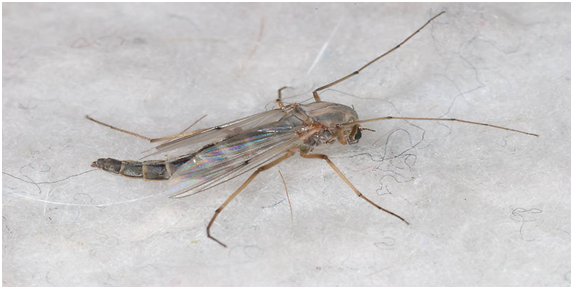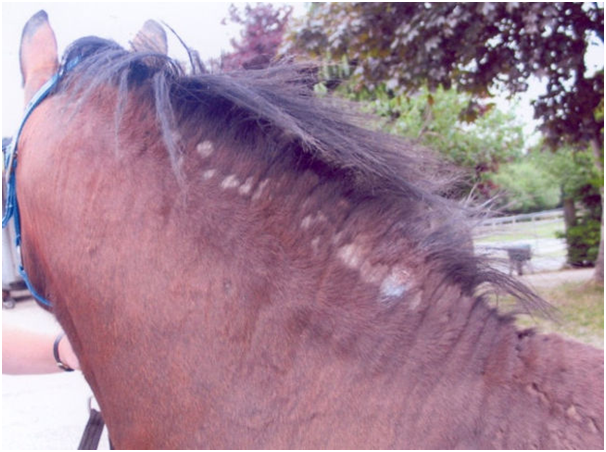With the colder months settling in, there will thankfully be some reprieve from this annual problem but if Sweet Itch has been driving you and your horse crazy this summer, get one step ahead and ready for next year before it becomes a problem again. The uncomfortable condition is also known as Seasonal Recurrent Dermatitis or more scientifically as Culicoides Hypersensitivity.
What is Sweet Itch?
The medical term for itching is pruritus and that’s what Sweet Itch is, a terribly frustrating urge to scratch that can lead to horses rubbing, scratching and biting at their skin. The itching can become so bad that horses are in danger of severely harming themselves and their surroundings.
Biting insects such as midges can cause this type of excessive itching, as well as allergies or skin infections. Bites from insects normally start in spring and subside by winter.
Does my horse have Sweet Itch?
Signs to look for include:
- Moderate to severe rubbing, biting and itching along the back, tail and mane.
- Loss of hair from mane and tail.
- Bald patches
- Open, sore areas of broken skin
What causes it?
Biting insects are the main culprit including midges, flies, lice and horse flies. Often more than one problem can be causing the itching. It might start as a bite which develops into an allergic reaction and ends in a secondary infection caused by bacteria entering the sore through biting, itching and rubbing. To ease any skin discomfort for a horse, a natural soothing remedy can be applied to affected areas, such as those available from http://www.stinky-stuff.co.uk/sweet-itch/

Allergies
These are the most difficult to diagnose, if you’re sure the problem is not being caused by biting parasites. Food reactions are rare in horses but an allergy to certain bedding could be a possibility. Using a hypoallergenic material such as hemp or paper might be advisable until the cause is established. If you suspect an allergy could be caused by mould, pollen or dust, specialist vet expertise will be necessary.
Prevention
During the summer months, an effective midge repellent is essential. Areas where midges breed such as water troughs should be cleaned regularly. Make sure your horse is stabled between the late afternoon and early evening when midges are at their most prevalent. Using an insect-proof mesh on windows and doors is another good preventative method. Keeping your horse covered in an ear to tail rug is a good idea as they are designed to combat this problem.
Installing ceiling fans with a strong current are another effective way of dealing with midges as they cannot fly against the air current. Medicated treatment on a daily basis is helpful to stop the midges biting and beginning the itching cycle that can lead to more problems.
Moving your horse or horses to a hilltop location can also help control the amount of contact that your horses have with clouds of biting insects who tend to remain low around moist conditions such as water.
